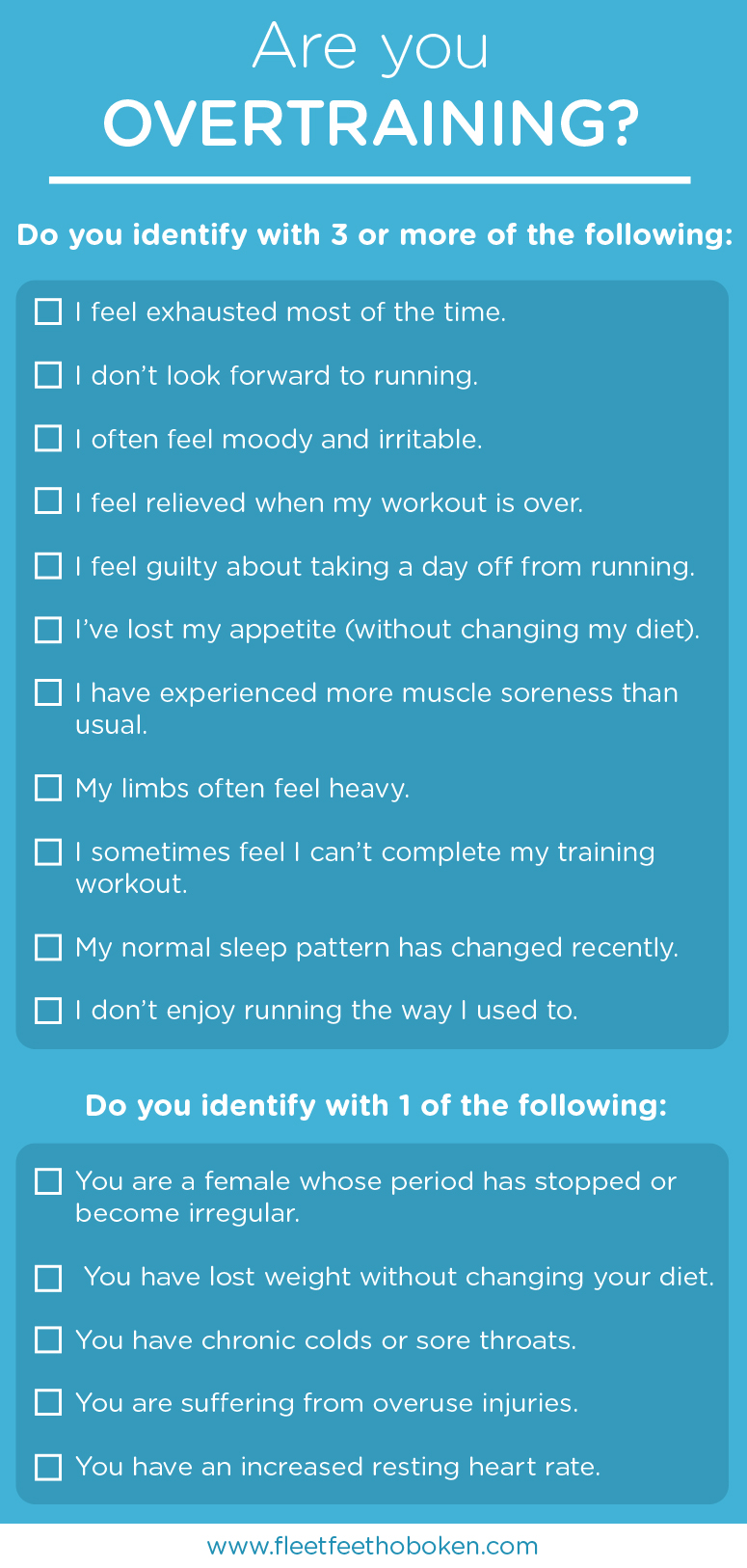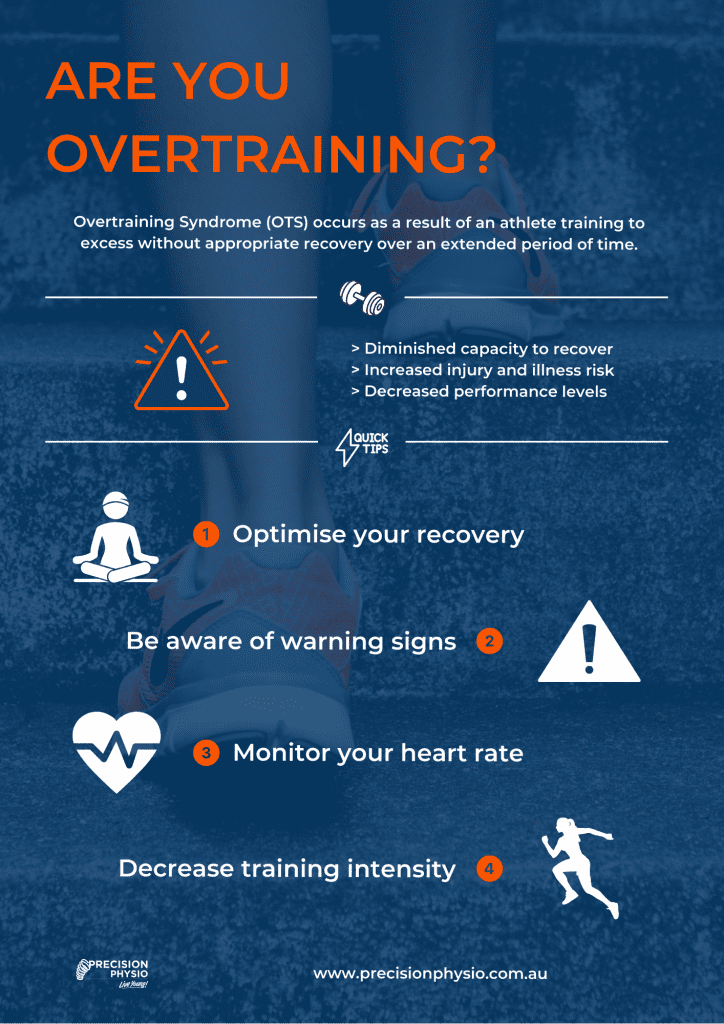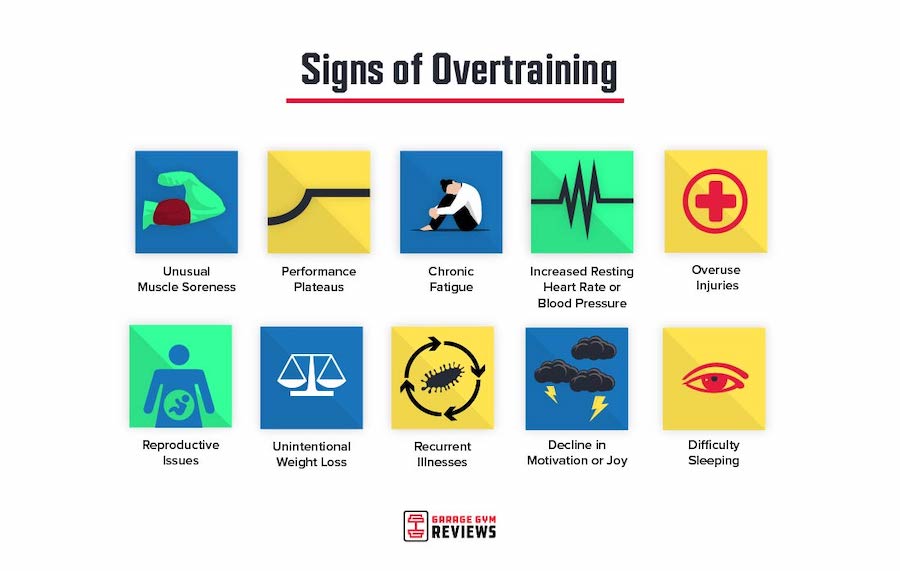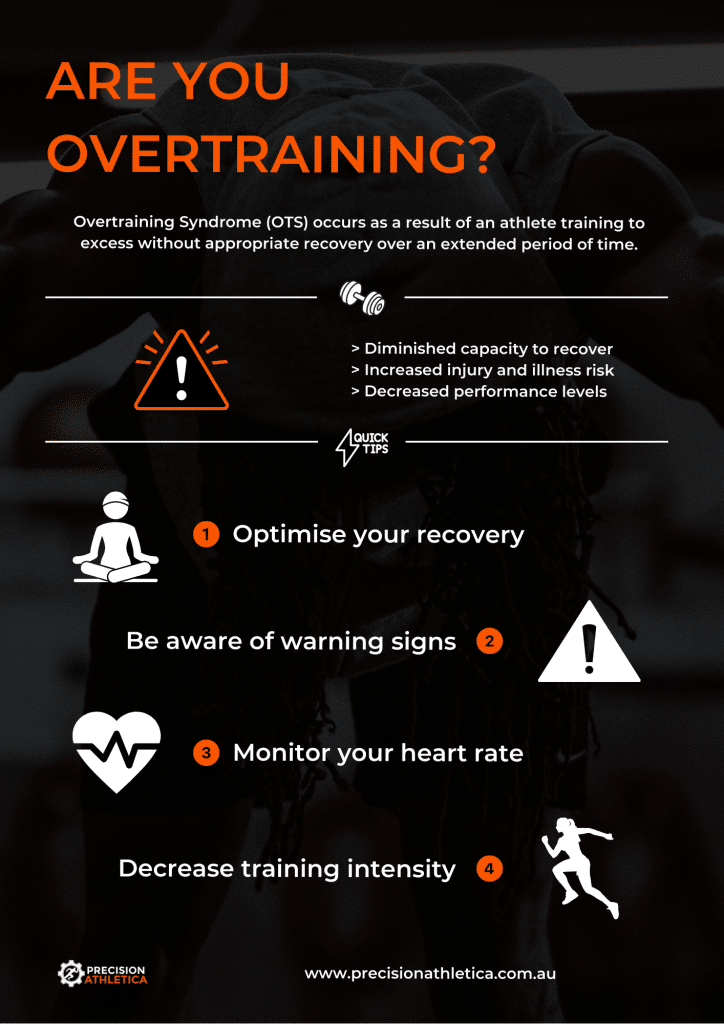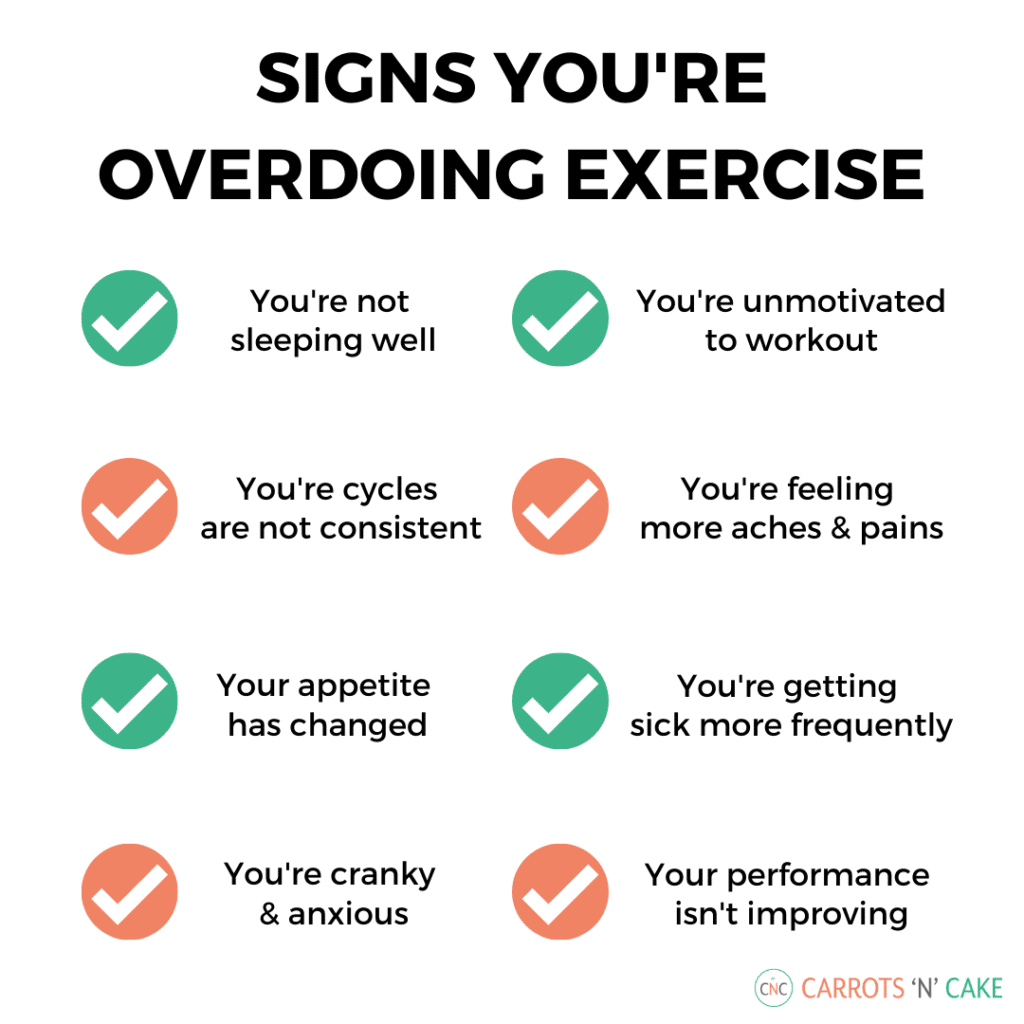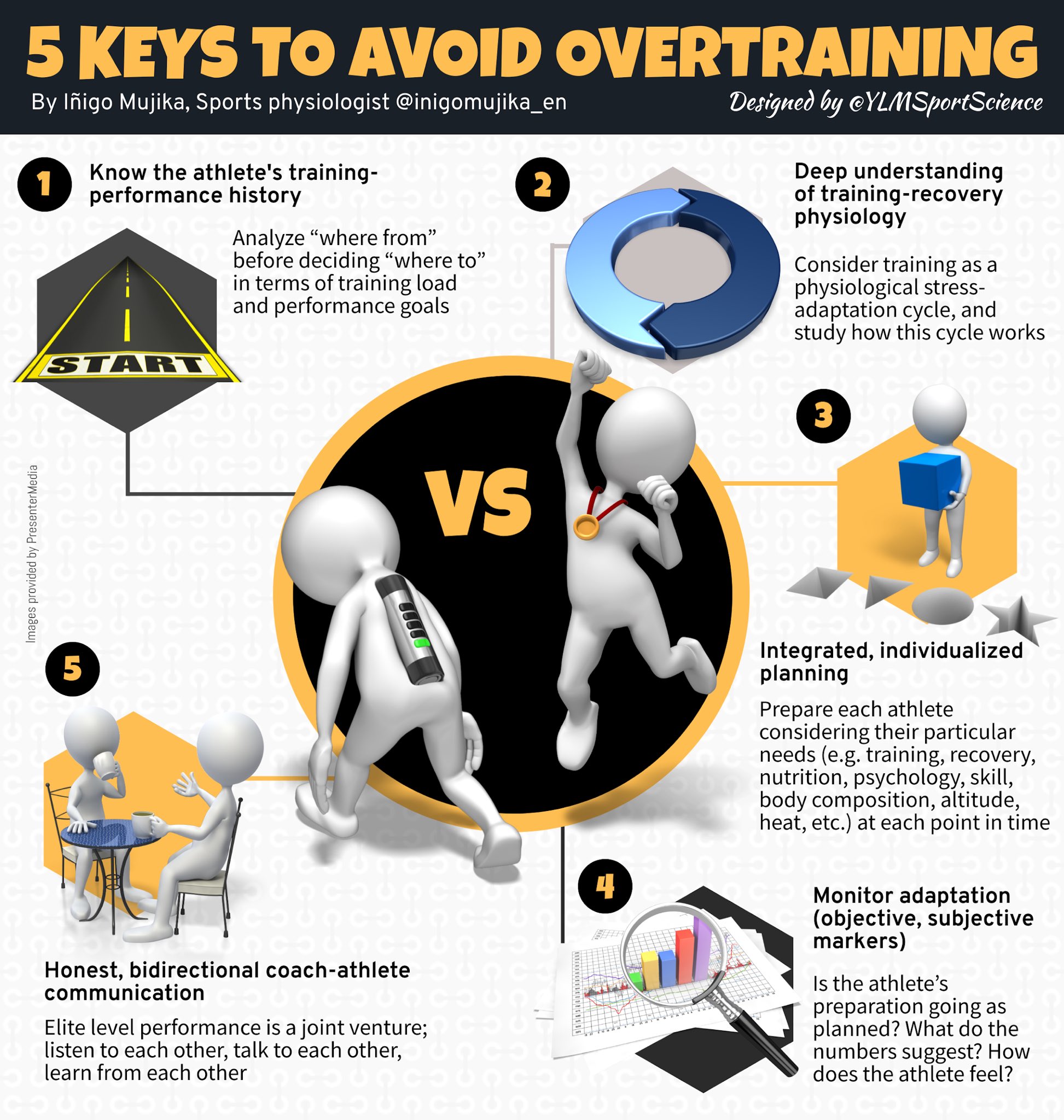Stunning Info About How To Recover From Overtraining

However, you won’t train at nearly the intensity of the workout that left its mark on you in the.
How to recover from overtraining. When overtraining is prolonged or recurrent—or when the. Change the intensity of your workouts with how your body is feeling. When you start working out again, activate different muscle groups.
You may have chronic injuries or nagging injuries that linger for a long time. How to recover from overtraining to get back on your feet, bring your energy levels back up, fix your emotional state, and prepare your body for a regular exercise routine again,. There is a portion of the fitness community that actually believe.
If you always feel exhausted after training it’s okay to pull back. (2) a perception of increased exertion during. Make this as prevalent as brushing.
Overtraining and undereating can get the “best” of us. What does overtraining look like? If your muscles are excessively sore after exercise, it may be due to.
One of the best ways to recover from overtraining is to… train. To recover from overtraining, the most important step is rest. Keep reading to get the aswers!
(1) a plateau or decline in workout performance or progress. How to recover from overtraining the requirements necessary to restore its equilibrium will differ from person to person. Treatment for overtraining symptoms and injuries can include:
This means that you need to stop training for a determined period of time. The only way that you can recover from overtraining is by resting. Often times, what begins as an innocent “clean.
The most common physical signs of overtraining include: The time will vary depending on the sport and the. This will all depend on.
The rice method the rice method (rest, ice, compress, elevate) approach for overtraining injuries is. How long does it take to recover overtraining? The symptoms of overtraining are many and include the lack of motivation to race and train, inability to complete most workouts due to fatigue, loss in power, and general overall irritability.
Extended muscle soreness and injuries that don’t heal are also signs of overtraining.

